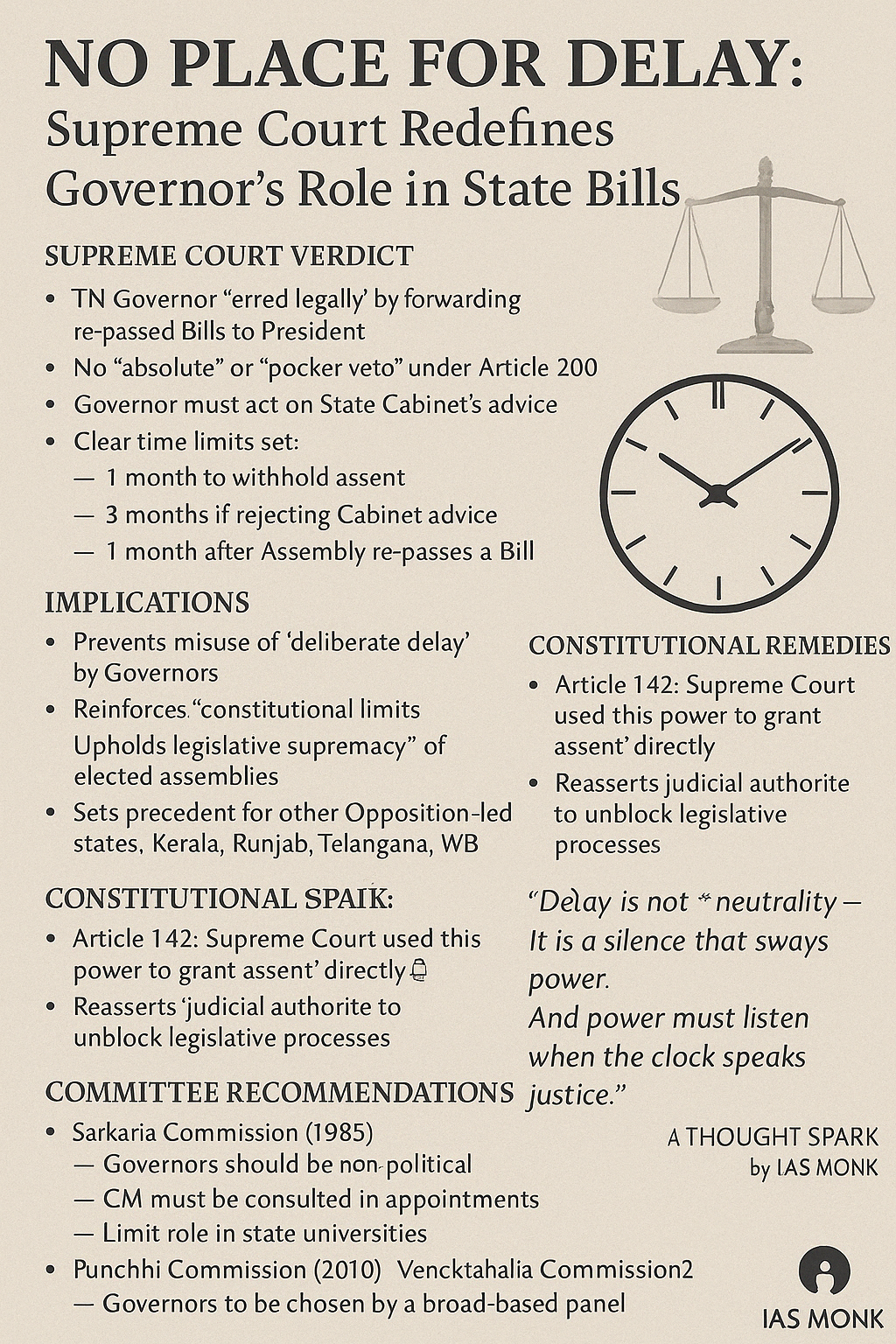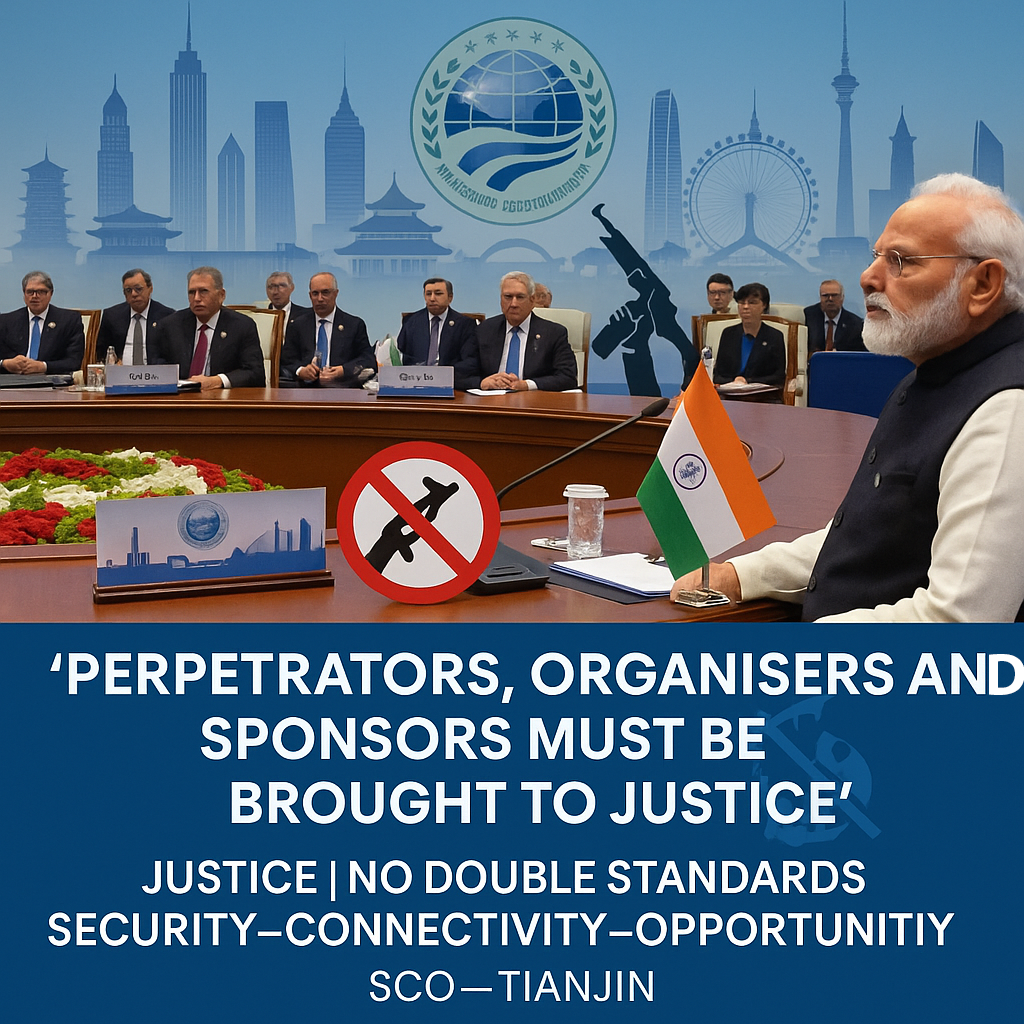
006 – Apr 9, 2025 ⚖️
No Place for Delay: Supreme Court Redefines Governor’s Role in State Bills

🧭 Thematic Focus
Category: Indian Polity | Governance | Constitution
GS Paper: GS Paper II – Indian Constitution and Polity
Tagline: When delay becomes denial, justice steps in with a ticking clock.
🔍 Key Highlights
🏛️ Supreme Court Verdict
- TN Governor erred legally by forwarding re-passed Bills to the President
- No “absolute” or “pocket veto” under Article 200
- Governor must act on State Cabinet’s advice
- Clear time limits set:
- 🕒 1 month to withhold assent
- 🕒 3 months if rejecting Cabinet advice
- 🕒 1 month after Assembly re-passes a Bill
🧨 Implications
- Prevents misuse of deliberate delay by Governors
- Reinforces constitutional limits
- Upholds legislative supremacy of elected assemblies
- Sets precedent for other Opposition-led states: Kerala, Punjab, Telangana, WB
📜 Article Snapshots
- Article 200: Governor can assent, withhold, return, or refer a Bill to the President
- Article 201: President may approve, withhold, or return non-Money Bills
- Article 207: Governor’s permission required to introduce Money Bills
📌 Constitutional Remedies
- Article 142: Supreme Court used this power to grant assent directly
- Reasserts judicial authority to unblock legislative processes
📖 Concept Explainer: Why This Matters
Governors are not gatekeepers of ideology, but guardians of constitutional decorum.
This ruling transforms constitutional silence into clear instruction.
🏛️ Committee Recommendations
Sarkaria Commission (1988)
- Governors should be non-political
- CM must be consulted in appointments
- Limit role in state universities
Punchhi Commission (2010)
- Time-bound assent to Bills
- Check misuse of Article 356
Venkatachaliah Commission (2002)
- Governors to be chosen by a broad-based panel
(PM, HM, LS Speaker, CM)
🧠 GS Paper Mapping
- GS Paper II – Indian Constitution, Separation of Powers, Centre-State Relations
- GS Paper IV – Ethics in Public Administration
💭 A Thought Spark — by IAS Monk
“Delay is not neutrality—
It is a silence that sways power.
And power must listen when the clock speaks justice.”


















